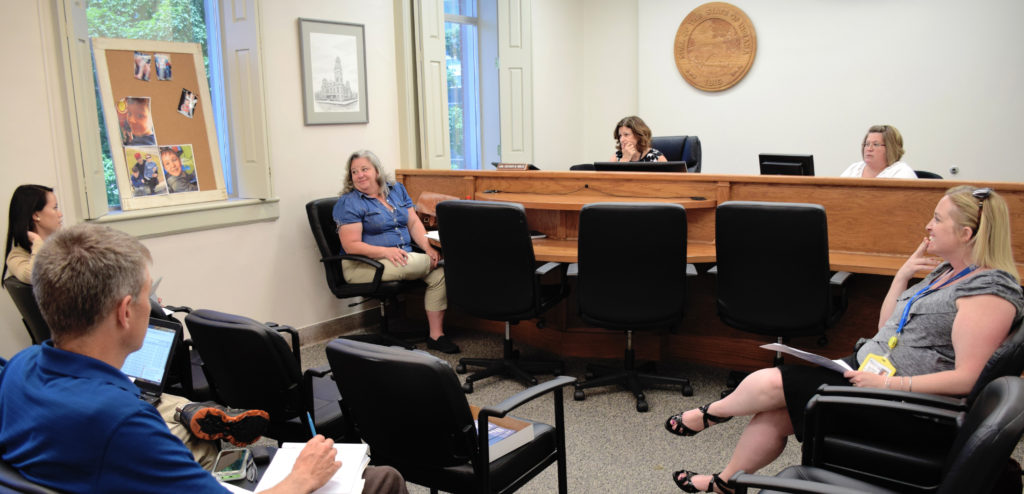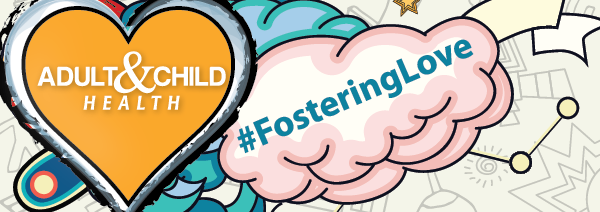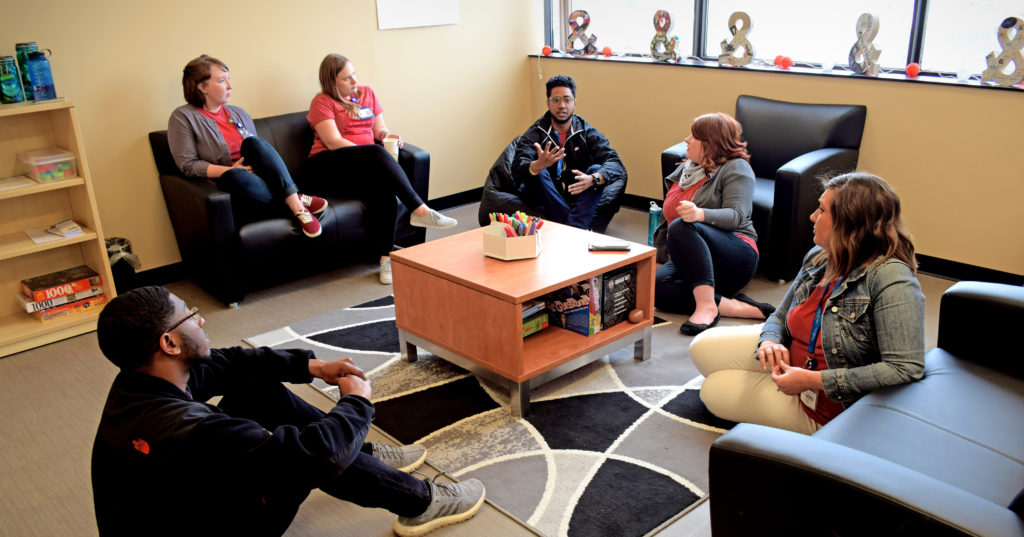Adult & Child Addiction Services Expand to Support Indiana’s Criminal Justice System

Adult & Child Health, a central Indiana behavioral health, primary care and social services provider, has expanded community-based addiction services in collaboration with local criminal justice systems. In Marion and Bartholomew counties, Adult & Child increased capacity to better serve court-involved persons and families that the Indiana opioid crisis has impacted. Adult & Child joined with the Marion County Superior Court Probation Department Opiate Supervision Project Team in 2017 to help formerly jailed opiate users get clean and restart their lives. As a treatment provider, Adult & Child’s role involves working with probation and courts to “wrap” opiate users with services and breaking the addiction cycle. “Most of the folks we’re seeing don’t belong in prison,” said Tara Elsner, Adult & Child’s Director of Outpatient and Addiction Services. “They’re ill and need help. We help them get the support they need to succeed in the community.” Drug Free Marion County recently recognized Elsner with its Community Service Award. In Bartholomew County, Adult & Child works within the newly implemented Family Problem-Solving Court, which aims to reunify families torn apart by drug abuse. Magistrate Heather Mollo began this initiative after witnessing her termination of parental rights caseload triple due to the opioid crisis and its effects. This specialized accountability court, only the fifth of its kind in Indiana, requires parents who are convicted of drug crimes to access addiction services treatment and achieve sobriety. The court maintains oversight and requires a strong commitment from parents in weekly meetings with Judge Mollo, representatives from the Department of Child Services, Court Appointed Special Advocates, and Adult & Child. “[Adult & Child was] was our first choice when we were thinking of what was needed for services,” Mollo said. “What we’re satisfied with from A&C is the holistic approach. Things are not so siloed. It’s the wraparound approach that gets our parents to the point of sobriety.” As a comprehensive, integrated health and social services provider, Adult & Child Health offers a wide range of services to people who are dealing with drug abuse and dependence. In addition to mental health and addiction services, Adult & Child also offers clinic and community-based primary care, medication-assisted therapy, job coaching, supportive housing, and child welfare services.
Helping Foster Kids Take on School: Therapeutic Foster Care’s Educational Advocate

The Problem: Statistics for foster children graduating high school are shockingly low. About 50% of foster kids never receive their high school diploma. Only 3% graduate from a 4-year college. A&C’s response: To employ an Educational Advocate on the Therapeutic Foster Care team, addressing all educational concerns of our foster kids. Sharon Dunlevy spends her days staying on top of students’ grades, attendance, educational concerns, and any behavioral issues they may be facing in school. She goes to meetings with teachers and principals, she helps implement and advocate for Individualized Education Plans & 504s, she teaches foster parents how to support the education of kids in their home. She tutors and facilitates tutoring. Goals: “One of our biggest goals is to have our students be successful in school and graduate. We’re looking to see what types of support we can offer them after they graduate. At the age of 24, statistics say that 50% of former foster care students will be unemployed. So, that’s our big focus: career and college prep, really making sure that if they age out, if they leave, whatever the circumstances are, that they can be successful after school,” said Sharon. She is also a resource for foster parents with concerns on how to support their children’s education. On what kids need most: “The need for the tutors is huge. Having a tutoring grant right now and having that outside help has been tremendous and makes a huge difference for the kids.” Sharon’s Strategy: “I really try and get to know kids personally. … I want them to succeed, but I want them to come to that themselves. I really try to work with them on why we want them to get good grades. I ask what they want to do after school. I try to always make it a partnership between us.”
Mayor Joe Hogsett Shows His Support for #FosteringLove

There are a staggering number of children in our community in need of foster care — but you can help. Follow @adultandchild or visit https://t.co/7B2xj6vWNS to learn how. #FosteringLove pic.twitter.com/CEAOVhTxWt — Mayor Joe Hogsett (@IndyMayorJoe) May 16, 2018
Spotlight On: Youth Development

The tiny seed that grew into Youth Development was first planted in a foster care meeting. Amanda Reuter, a therapist for Therapeutic Foster Care at the time, noticed an emerging pattern of foster youths asking about sex. But they didn’t have a safe, informative space to discuss it. She wanted to know what Adult & Child Health could do to help. That question set her new career path in motion. “And that’s kind of where it blossomed,” Reuter said. After working on that idea and learning about the options available, A&C received a small grant to facilitate a program called Pregnancy Prevention. In addition to her therapeutic work, Amanda led group meetings and talked with adolescent-aged youths about sexual health. Learn more about Adult & Child Health’s Foster Care Program by clicking here. It’s not just about sex Through many conversations with these kids, more needs kept popping up. Reuter knew she wanted to address them. “Through youth expressing that there was more that they wanted, it grew,” she said. A combination of organic development and hard work was the recipe for the Youth Development team as it stands today. It’s a group of six passionate professionals who educate and advocate for youths. The group meets in its youth hangout space, brainstorming and filtering through meeting topics. The newly renovated fourth floor of their office at 603 E. Washington St. in Indianapolis houses the Youth Development and Specialty Service offices. It also includes a relaxing, living-room-type area with couches, a coffee table, games, puzzles, markers and yoga mats. Paper mache ampersands line the window sill, and a jar of condoms marked, “Please take one” sits atop a bookshelf. Team-building is important here. All of the members work on their own programs. To foster a sense of togetherness, however, they also discuss common topics and help each other solve problems. They’ll then cap it off with a group mindfulness exercise like yoga or meditation. RELATED CONTENT: Learn more about Adult & Child Health’s Open Access program for patients who are seeking mental health services. How does it work? Youth Development works within a framework of grants. Each member is responsible for only one. They’re funded through mostly federal money for different types of projects. Currently, the team has three grants: IN-PACT, Project I, and the Serve Project. These programs all have unique specifications, but employees typically lead group meetings. Groups of adolescents rotate through week-to-week programs. Team members travel to schools and residential facilities to lead one-day groups. Their topics include sexual health, goal-setting and community service, among others. Any adolescent is welcome to join. The team is enthusiastic about making sure every kid has a voice, and they place those kids in the right program at the right time. They focus a lot of their work around learning, sharing their stories, and creating projects together. “Our overall mission is the same across all grants,” said Angel Crone, lead youth development specialist. “That’s how we’re able to work together.” RELATED CONTENT: Helping Foster Kids in School: Therapeutic Foster Care’s Educational Advocate In Youth Development, the kids have a voice Anytime this team steps in a new direction, their mission and vision are always at the forefront. They make sure their role, no matter the project, serves to help youths develop personal, social, academic and citizenship competencies through strength-based methods. In a way, the youths always dictate where to go next. Grants and projects provide funding and structure, but the team exists to help any young person become the best version of themselves. “We’re not just focused on one aspect of the youth’s lives, we’re trying to have a holistic approach,” Crone said. This mindset sometimes means stepping away from the grant structure, such as with their Art Night in June. A foster youth voiced a desire to express themselves through their art. Many other artistic teens agreed. It led to a fresh, collaborative project for Youth Development and another avenue for youths to discover their self-worth. The Youth Development team takes its role as listeners seriously. “We’ve really been challenging this concept of adultism, and just what youth-led, youth-driven really means,” Reuter said. The concept of adultism means dismissing young people’s opinions based on their age, the classic ‘because I’m older, I know more than you.’ “We’re trying not to lead with that mindset,” Crone said. This perspective contributes to a partnership between the youth and team instead of a hierarchy. They don’t fight a losing battle with cell phones. They let kids play music that might glorify questionable morality. “We’ll play the song, but then we might use that to start a conversation about those topics and discuss what they think about them,” Reuter said. They refer to group rules as ‘agreements.’ By participating, every person agrees to confidentiality, openness, and respect. This way it’s a choice, a core concept of the partnership angle. Learn more about Adult & Child Health’s Foster Care Team. The role adults play But challenging adultism presents a new set of challenges with actual adults in the youth development mix. “Any group we lead also has a parent component,” Reuter said. They welcome biological parents, foster parents, and any other trusted adults in an adolescent’s life. “It’s not the work with the kids that’s hard, it’s the work with the adults that surround them,” Crone said, laughing. But it’s true, because this team has the important role of fostering communication between those parents and teens, an eternal struggle, especially about tricky topics like sex. For foster kids with so many different adults assigned to support them, it can be challenging to navigate every adult’s opinion while simultaneously developing your own. “I think we’re trying to use our unique position of privilege and power, working in a mental health organization, to amplify the youth voice … we work with youth to identify ways that they can be their own advocate,” Reuter said. Since the team is so young, its larger impact is still somewhat unknown.



